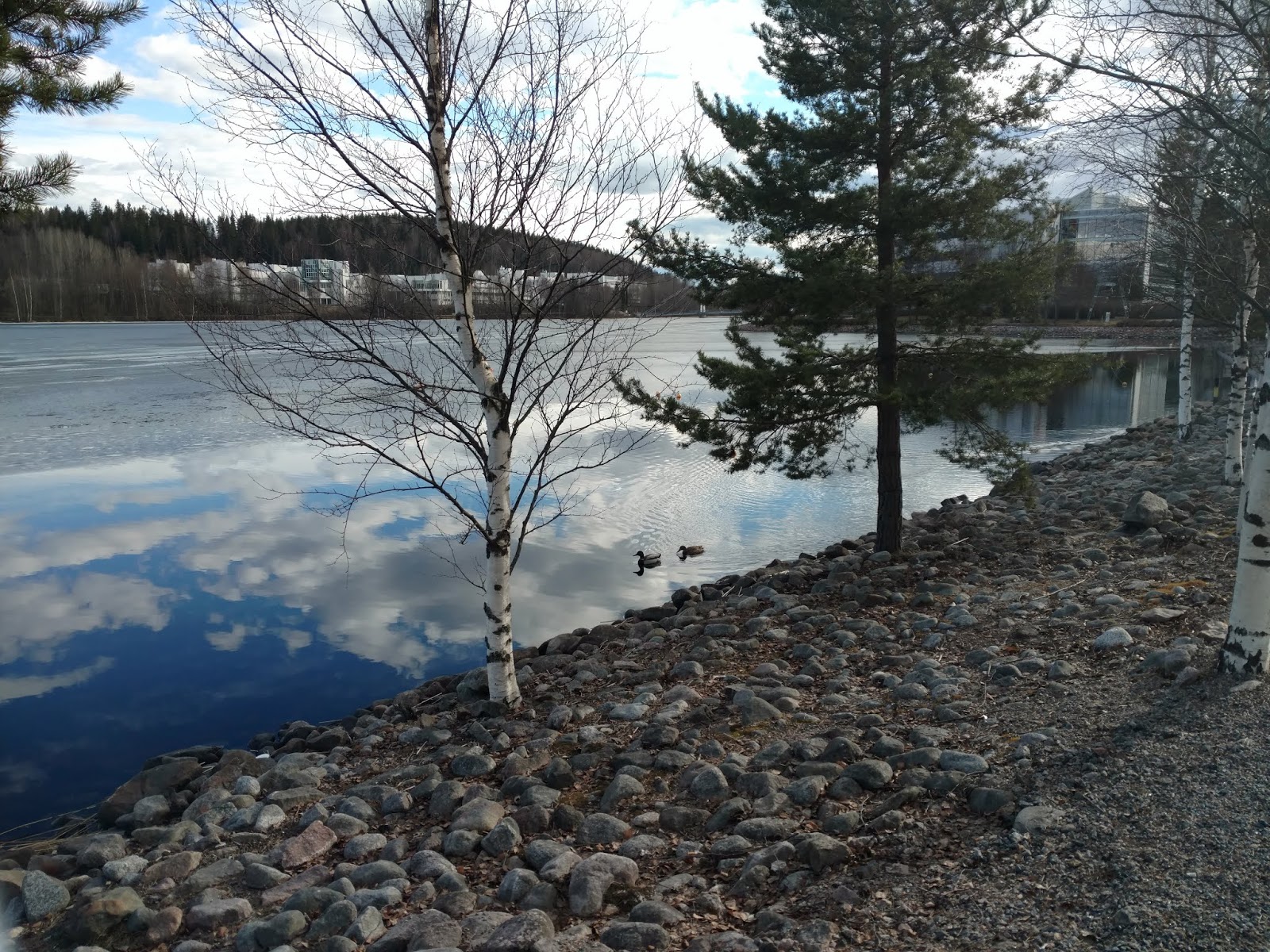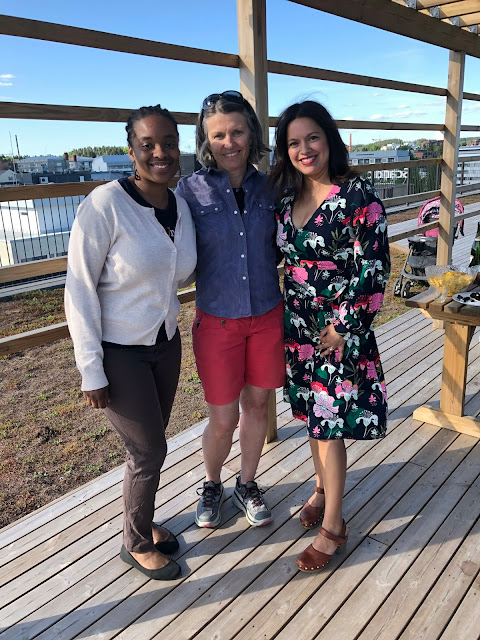February marked a number of school visits ranging from
elementary (primary) to middle school (lower secondary) and high school (upper
secondary.) As the Fulbrighters get their feet wet, mastering public
transportation, integrating in schools, and networking in the education world,
the question that keeps arising in lunch rooms and private conversations is why
do we have so much violence in schools?
 |
| History Department, Jyvaskyla Normal School (Lower and Upper Secondary) |
I was trying to explain my school environment both to the
History department at the University of Jyvaskyla Teacher Training School (the
Finnish version of a lab school) and to seniors at Schildt school, both mature
audiences who can handle a nuanced discussion. It never occurred to me just how
much I’ve internalized and to an extent, normalized the violence in our
society.
 |
| The new high school seniors asked if gun control might be feasible after Stoneman |
How does one explain the dramatic rise in poverty we have
experienced over the last few years, and the vast wealth inequality that has
existed for much longer? How do I explain that our society values the
protection of gun owners’ rights over the innocent lives of children? Mercifully,
my Finnish audiences were kind enough to not push the matter as they must have
seen how painful these questions were to answer.
 |
| Why are there so many school shootings?-Sean, 5th Grade |
Trying to make a connection with the high school seniors, I asked
about the type of emergencies that they might experience in the area, such as
natural disasters or social problems. Floods? They shook their heads. Fires?
No, they responded. Hunger, poverty, and violence? I already knew the answer to
that question. “There are no emergencies,” the teacher said kindly. Now I am sure Finland has its share of internal problems and the bitter winter is not for the weak. But overall, its students are well taken care of and have a bright future that includes health care and higher education for all citizens.
 |
| My little buddies with great questions at Pupuhuhdan School |
Teachers know from basic university methodology courses that
students whose brains are stressed cannot learn. The degree to which they
experience stress varies from school to school, but in our toxic political
environment, I think it would be safe to say that no student in our society can
honestly say they are carefree, without worry, and unconcerned about “emergencies.”
Even in the most stable of schools (by all accounts, Stoneman Douglas is as
stable as they get), students still have to worry about whether their peers
will turn to violence when it comes to dealing with the very American
phenomenon of school shootings.
 |
| Of course they can concentrate when there is a break every hour |
When we compare PISA scores and debate how to increase
student achievement, we should do ourselves a favor and understand that the USA
cannot compare itself to any other country. We have created a unique society
that for better or for worse is unduplicated anywhere on this planet. My musings about the school violence question
lead me to a very simple conclusion, and recommendation: if our schools are
saturated with stress from all facets of society, to reduce stress within our
school buildings let us remove any gratuitous burdens heaped on us by
politicians. Namely, school scores and rankings.
 |
| Well-clothed, fed, in a warm school to protect children from the elements |
Imagine if teachers
did not have to worry about teaching to a test, or trying to raise their
evaluation scores through test scores.
Imagine if we eliminated faculty meetings and professional
developments and trusted teachers to acquire these learnings on their own time.
Imagine if we reduced our content standards to emphasize
depth vs breadth, to achieve greater mastery.
Imagine if we gave students and teachers brain breaks
throughout the day because we already know the kids are overloaded.
Common sense solutions are what the Finnish education system
is based on, many solutions which are free or low cost. I for one plan to
actively pursue exploring common sense solutions back in California when I
return.










Comments
Post a Comment